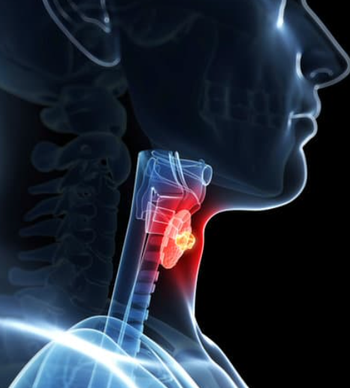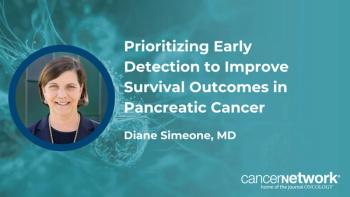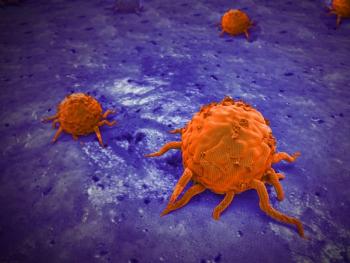
UK Trial Suggests Benefit, Parameters for Lung Cancer Screening Program
The UK Lung Cancer Screening Trial found that a low-dose CT screening program targeting high-risk individuals can find lung cancer at early stages.
The UK Lung Cancer Screening Trial (UKLS) found that a low-dose computed tomography (LDCT) screening program targeting individuals at elevated risk for lung cancer can find cancers at early stages, with manageable psychosocial effects.
The US Preventive Services Task Force now
Almost 250,000 individuals were approached about participating in the trial, and 8,729 out of 75,958 who responded positively were deemed to have a high risk of lung cancer. A total of 4,055 ended up being randomized to either CT scanning or usual care; 1,994 received a thoracic CT scan.
Overall, 979 of those screened had a clear scan (no nodules or benign nodules), 479 had findings that led to a 12-month follow-up scan (small, probably benign nodules), 472 were scheduled for a 3-month follow-up scan (larger, potentially malignant nodules), and 64 had nodules with a higher chance of malignancy and were referred directly to a multidisciplinary treatment team.
Of those with the highest-risk nodules, 41 were found to have lung cancer; one further patient was found to have lung cancer at a 12-month follow-up scan. In total, the baseline prevalence of lung cancer was 1.7%, and 2.1% of all those screened have so far been diagnosed with lung cancer. Of the cancers detected by screening, 36 out of 42 (85.7%) were found at stage I or II, when cancers could likely be treated with curative intent.
“If we could detect lung cancer via screening of high-risk individuals, it would make a major impact on the diagnosis of lung cancer at an earlier stage of the disease and would greatly improve the survival rates of those affected by this terrible disease,” said John Field, PhD, of the University of Liverpool, who led the UKLS, in a
The study defined false-positive results in two ways: the false-positive rate was 3.6% when considering those referred to a multidisciplinary team who did not turn out to have lung cancer, and it was 23.2% when considering individuals referred for a repeat scan before 12 months had elapsed who then did not have lung cancer.
The authors did note that with regard to psychosocial impact of the screening program, “transient negative consequences” were found in those who received LDCT screening and in those who received negative results of those scans. However, those effects resolved relatively quickly and did not appear to have significant clinical consequences. A preliminary analysis with “a number of serious uncertainties” also showed that a screening program could be cost-effective based on these results.
Longer-term results will be needed to determine effects on survival outcomes, and the authors noted that other trials-the Dutch-Belgian NELSON trial in particular-will likely offer survival outcomes from lung cancer screening this year and in 2017.
Newsletter
Stay up to date on recent advances in the multidisciplinary approach to cancer.



















































